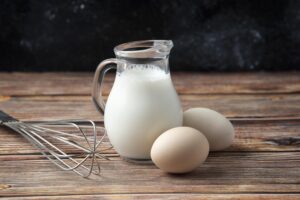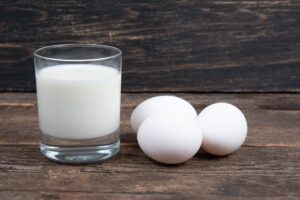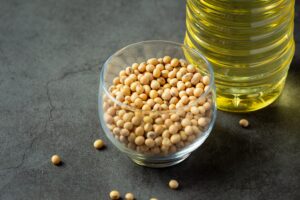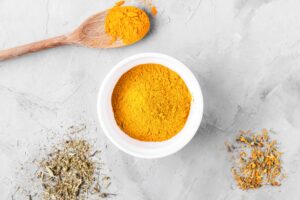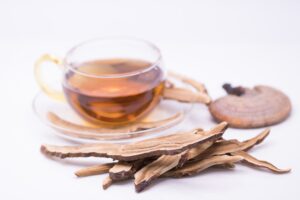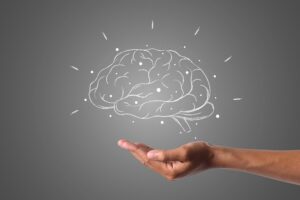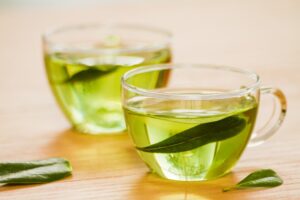Alam, A. B., Lutsey, P. L., Gottesman, R. F., Tin, A., & Alonso, A. (2020). Low serum magnesium is associated with incident dementia in the Aric-NCS Cohort. Nutrients, 12(10), 3074. https://doi.org/10.3390/nu12103074
Bakre, A. T., Chen, R., Khutan, R., Wei, L., Smith, T., Qin, G., Danat, I. M., Zhou, W., Schofield, P., Clifford, A., Wang, J., Verma, A., Zhang, C., & Ni, J. (2018). Association between fish consumption and risk of dementia: A new study from China and a systematic literature review and meta-analysis. Public Health Nutrition, 21(10), 1921–1932. https://doi.org/10.1017/s136898001800037x
Cannavale CN;Mysonhimer AR;Bailey MA;Cohen NJ;Holscher HD;Khan NA; (n.d.). Consumption of a fermented dairy beverage improves hippocampal-dependent relational memory in a randomized, controlled cross-over trial. Nutritional neuroscience. https://pubmed.ncbi.nlm.nih.gov/35282787/
Hartnett, K. B., Ferguson, B. J., Hecht, P. M., Schuster, L. E., Shenker, J. I., Mehr, D. R., Fritsche, K. L., Belury, M. A., Scharre, D. W., Horwitz, A. J., Kille, B. M., Sutton, B. E., Tatum, P. E., Greenlief, C. M., & Beversdorf, D. Q. (2023). Potential neuroprotective effects of dietary omega-3 fatty acids on stress in alzheimer’s disease. Biomolecules, 13(7), 1096. https://doi.org/10.3390/biom13071096
Hurd, B. (2018, November 29). B is for brain health. Healthy Brains by Cleveland Clinic. https://healthybrains.org/b-brain-health/
Johnson, E. J., Vishwanathan, R., Johnson, M. A., Hausman, D. B., Davey, A., Scott, T. M., Green, R. C., Miller, L. S., Gearing, M., Woodard, J., Nelson, P. T., Chung, H.-Y., Schalch, W., Wittwer, J., & Poon, L. W. (2013). Relationship between serum and brain carotenoids,. Journal of Aging Research, 2013, 1–13. https://doi.org/10.1155/2013/951786
Lau, H., Mat Ludin, A. F., Rajab, N. F., & Shahar, S. (2017a). Identification of neuroprotective factors associated with successful ageing and risk of cognitive impairment among Malaysia older adults. Current Gerontology and Geriatrics Research, 2017, 1–7. https://doi.org/10.1155/2017/4218756
Mancini, E., Beglinger, C., Drewe, J., Zanchi, D., Lang, U. E., & Borgwardt, S. (2017). Green tea effects on cognition, mood and human brain function: A systematic review. Phytomedicine, 34, 26–37. https://doi.org/10.1016/j.phymed.2017.07.008
PDR for nutritional supplements. (2001). . Medical Economics Co.
Probiotics may help boost mood and cognitive function. Harvard Health. (2019, June 8). https://www.health.harvard.edu/mind-and-mood/probiotics-may-help-boost-mood-and-cognitive-function
Sarraf, P., Parohan, M., Javanbakht, M. H., Ranji-Burachaloo, S., & Djalali, M. (2019). Short-term curcumin supplementation enhances serum brain-derived neurotrophic factor in adult men and women: A systematic review and dose-response meta-analysis of randomized controlled trials. Nutrition Research, 69, 1–8. https://doi.org/10.1016/j.nutres.2019.05.001
Tao, M., Liu, J., & Cervantes, D. (2022). Association between magnesium intake and cognition in US older adults: National Health and Nutrition Examination Survey (NHANES) 2011 to 2014. Alzheimer’s & Dementia: Translational Research & Clinical Interventions, 8(1). https://doi.org/10.1002/trc2.12250
Tsurumaki, N., Zhang, S., Tomata, Y., Abe, S., Sugawara, Y., Matsuyama, S., & Tsuji, I. (2019). Fish consumption and risk of incident dementia in elderly Japanese: The Ohsaki Cohort 2006 Study. British Journal of Nutrition, 122(10), 1182–1191. https://doi.org/10.1017/s0007114519002265
Yagi, A., Nouchi, R., Butler, L., & Kawashima, R. (2021). Lutein has a positive impact on brain health in Healthy Older Adults: A systematic review of Randomized Controlled Trials and Cohort Studies. Nutrients, 13(6), 1746. https://doi.org/10.3390/nu13061746
Zamroziewicz, M. K., Paul, E. J., Zwilling, C. E., Johnson, E. J., Kuchan, M. J., Cohen, N. J., & Barbey, A. K. (2016). Parahippocampal cortex mediates the relationship between lutein and crystallized intelligence in healthy, older adults. Frontiers in Aging Neuroscience, 8.
Zhang, K., Chen, M., Du, Z.-Y., Zheng, X., Li, D.-L., & Zhou, R.-P. (2018a). Use of curcumin in diagnosis, prevention, and treatment of alzheimer’s disease. Neural Regeneration Research, 13(4), 742. https://doi.org/10.4103/1673-5374.230303

